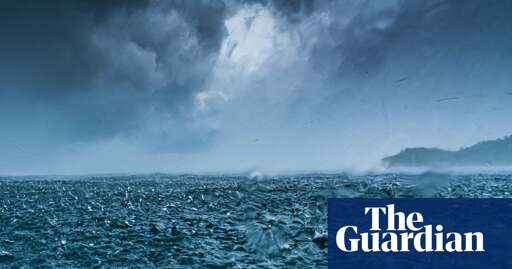Scientists say ‘shocking’ discovery shows rapid cuts in carbon emissions are needed to avoid catastrophic fallout
The collapse of a critical Atlantic current can no longer be considered a low-likelihood event, a study has concluded, making deep cuts to fossil fuel emissions even more urgent to avoid the catastrophic impact.
The Atlantic meridional overturning circulation (Amoc) is a major part of the global climate system. It brings sun-warmed tropical water to Europe and the Arctic, where it cools and sinks to form a deep return current. The Amoc was already known to be at its weakest in 1,600 years as a result of the climate crisis.
Climate models recently indicated that a collapse before 2100 was unlikely but the new analysis examined models that were run for longer, to 2300 and 2500. These show the tipping point that makes an Amoc shutdown inevitable is likely to be passed within a few decades, but that the collapse itself may not happen until 50 to 100 years later.



Circulating the hot air north into cooler climates brings rain and snow to what would otherwise be a dry North American inland. A collapse in the current wouldn’t change the prevailing climate, just the distribution of heat between regions. You’d end up with these ugly Atlantic hot spots paralleled by dry tundras up north. But the planet wouldn’t cool as a result. If anything, the resulting desertification would contribute to the warming cycle.
Isn’t Europe specifically supposed to get really cold?
Western Europe - England, France, and Scandinavia in particular. Southern Europe is going to get much hotter.
I believe I read that it would cause rainfall in North America to increase. But decrease in India and West Africa which would be pretty catastrophic.
India is nowhere near the Atlantic, though. You might be thinking of monsoons changing due to separate effects.
Surprising but that’s what it said, unless I’m misremembering.
The climate system is interconnected and a big change like this can have geographically distant effects.